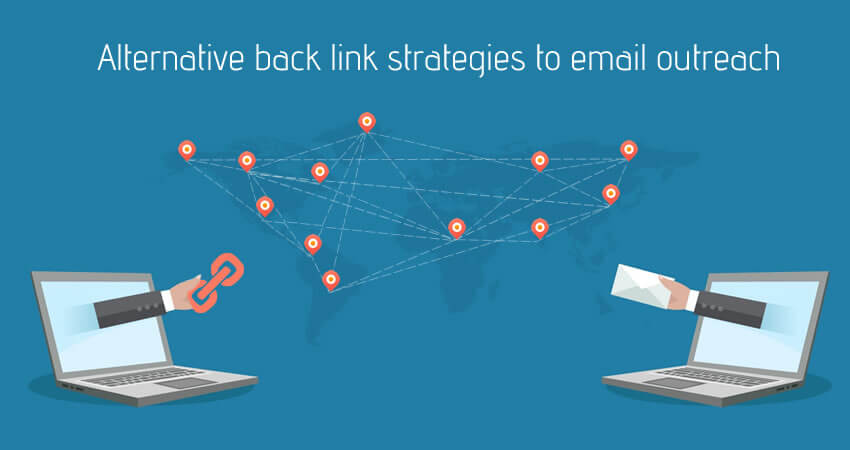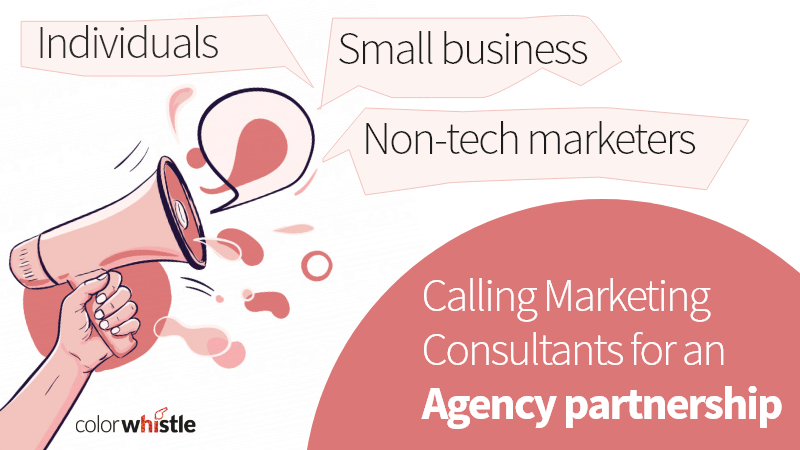Email outreach and targeted guest posting may be overused strategies
Link building remains a key SEO strategy for most of us. Email outreach for back links is a time-tested strategy for boosting your website’s ranking on Google. Almost everyone does it and so do you. Yet, it may be time to look for alternative back link strategies given just how ubiquitous outreach emails and guest postings have become.
A glimpse into the past
There was a time when you could:
- Pay for links
- Post links to directories all over the internet
- Spin articles in order to get a link back to your site
- Stuff keywords all over your content
- Sneak in broken links just to make sure Google picked up on the keywords
- Use unnatural anchor text
It worked for plenty of websites and so these practices continued. Until the day these websites simply didn’t turn up on Google anymore. Articles disappeared, blogs wouldn’t show up – online traffic to these pages came to a standstill.
What most of us don’t reckon with then, but are acutely aware of now, is that the Google search engine is continuously evolving and what was OK in 2008 just won’t cut it in 2016. Google’s algorithm is now all about organic growth of a website up the ranking system. A website must rank higher ‘naturally’.
It doesn’t mean that you can make a website and hope for the best. While it doesn’t mean that back linking is a dying method, Matt Cutts of Google emphasizes that how you build the links will matter.
You will also in all probability need expert SEO folks working to build your ranking steadily in Google. While there is plenty of discussion on what is natural link building, one method that Google seems to like is link building through outreaching emails.
How and why outreach emails work?
What happens is pretty straightforward. You, for example, have a travel website. Now to get Google to see you as a quality website you need some kind of validation.
If other travel domains are willing to link their content back to you, then it is considered validation that your website is what it appears to be and therefore qualifies to be ranked on Google.
How do you get an external link / 3rd party to link back to you? You send an email that directly or indirectly asks them to link back to your website. You then hope that the recipient of your email will click your link, scan through the website and link back as requested.
The other method is requesting the opportunity for guest posting by asking the recipient to read what is written on your website and having them link directly to your post in case they want to share something with their customers on a particular topic.
In many cases, you may even offer to create their posts for them and link back to your own website.
Since these methods get ranking results and Google regards such link building as natural, almost everyone has been doing it. But there are a few things to consider:
- This strategy is time consuming and therefore expensive.
- It becomes less cost effective if the links are not bringing you the type of result that you were hoping for.
- It only works if you have really valuable and relevant content.
- Your run the risk of appearing spammy – a BIG no for Google.
Why we need to look at alternative back link strategies for SEO
There may be such a thing as overusing a strategy. Although outreach email link building method can have as much as 5% turnaround (it is very high, trust me), it is up to you to decide if this is worth the time it takes.
Also remember that this technique requires quite the innovative skills. Your emails must be attention grabbing and not churned from the mill.
Also your website must be robust before you ask for links back to it. Some of the critical points are:
- Aim to build less backlinks not more. Links should be from authoritative domains. Quality over quantity
- Have a technically optimized website. This also means eradicate all technical errors on your website.
- Strong site architecture leads to better link building.
- Last and certainly not the least, get in really good (and I mean really well) content. For those who think that content doesn’t matter, there is no need to go further with this post.
For optimization, content is still king – even more than ever
The simple logical reason why content is important is that people come to a website, searching for specific content. If someone is looking for suiting material of weight between 200g and 300g, that is what they are going to type in the search engine.
Your website should have adequate content that addresses the search. Relevancy of content is therefore paramount. Only if I have relevant content shall I be able to convince another domain owner to build a link with my site.
Moreover Google’s algorithm is now evolved enough to place content relevancy as the deciding factor when it comes to the back links your site gets. Also if well written content on your website is acknowledged by other domains, and especially if the acknowledgement is unsolicited, it adds to the authority of your domain.
Therefore, today a webmaster has to come up with alternative back linking strategies that allow them to take advantage of link building without compromising the website.
What alternatives are there to outreach emails?
Some of the alternatives to back linking strategies that are fast catching on are:
- Building valuable content: As noted above, excellent content is a surefire way of attracting attention from authority domains. An original research article, an original video or even a well-developed infographic would all constitute attractive content. When someone voluntarily links to your content it is the most natural method of link building. You can always reciprocate the gesture if you find that their content is equally evocative and relevant.
- Get reviewed by third parties: Today the probability is much higher that a customer will make a purchase decision based on reviews that they find about you on the Internet. Sites like Yelp, TripAdvisor etc. are picked up by Google’s algorithm to check which brands are attracting the most number of reviews. Since reviews cannot be solicited, you may want to encourage your website visitors to leave their own reviews by showcasing third party reviews on your website. A simple “Read about us on Yelp” link should suffice.
- Social sharing: Your brand can send some really strong signals to Google’s algorithm if the brand has a strong social media presence. While activity in social media is not the cause of ranking changes, what it does is that it adds to the authority and trust of the domain. This then gets reflected in the search rankings of Google.
- Posting links to trusted directories: Whether you post your optimized link to a link directory or a web directory, make sure the directory is trusted and has not been excluded from Google search results. Building links in niche directories and directories of industry-relevant informative websites are a solid method for getting better link building results.
- Use outreach emails and guest posting judiciously: While these strategies work, you may need to cut down on the numbers if you want Google to view you as an authority site. Choose your recipients carefully and have well-written content to share when sending outreach emails. If you want to guest post, choose domains that are 100% relevant to your business and provide content that adds value. I also found Brian Dean’s Moving Man Method quite a good way to make outreach emails more effective. It combines broken link building and email outreach in an ingenious manner.
Then again, if email outreach for back links doesn’t seem to be working for you, then it may be time to look for alternative methods to get back links. Before that you may want to:
- Take the time to compare your website and a competitor website
- Look at the site architecture
- Look at the site’s technical integrity
- Look at the site content
Better yet, reach out to an SEO expert who provides a full range of services from website redesign (which includes content revamp) to masterful SEO strategies (including link building, graphic design, social media marketing, social media management and much more).
If you still want to use email outreach as a ‘natural’ link building strategy, make sure that you have all the key factors in place before you start employing it. Otherwise you run the risk of appearing more ‘unnatural’ than otherwise.



